Research Degree Graduate Qualities (how to achieve them)
| Site: | learnonline |
| Course: | EDGE workshops and online resources for higher degree by research candidates |
| Book: | Research Degree Graduate Qualities (how to achieve them) |
| Printed by: | Guest user |
| Date: | Tuesday, 3 March 2026, 3:48 PM |
Description
This site offers guidance to research degree students about how to achieve the seven Research Degree Graduate Qualities during their candidature.
RDGQ 1: Research knowledge and methodologies
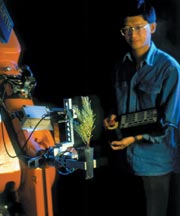 To achieve RDGQ 1, the research degree graduate:
To achieve RDGQ 1, the research degree graduate:
has an understanding of current research based knowledge in the field, its methodologies for creating new knowledge, and can create, critique, and appraise new and significant knowledge.
Generic indicators
A research degree graduate will:
- be informed by the forefront of their academic discipline or professional area
- be able to create new knowledge, making an original and significant contribution to knowledge or to the application of knowledge in their research area
- display critical awareness of current problems and new insights
- command highly specialised and advanced technical, professional research skills to extend the forefront of the discipline or professional area
- demonstrate an informed and critical understanding of the research literature in their research area
- have a knowledge of appropriate research methodologies in their research area.
Developing and demonstrating this RDGQ
This quality refers to knowledge of your field of research, and can be developed or demonstrated in any of the following ways:
- reviewing literature in the discipline/s and field/s of research
- contributing to the field/s of research in the form of academic publications and presentations to peers in the field
- teaching activities related to your discipline/s and field/s of research
- any structured research training support activities undertaken in relation to the above.
Your knowledge of the field of research can also be demonstrated in:
- conference, seminar, conference posters or other presentations in the field
- journal articles and other publications in the field
- comments about the quality of your work from other scholars in the field.
RDGQ 2: Lifelong learning
 To achieve RDGQ 2, the research degree graduate:
To achieve RDGQ 2, the research degree graduate:
is prepared for lifelong learning in pursuit of ongoing personal development and excellence in research within and beyond a discipline or professional area.
Generic indicators
A research degree graduate will:
- demonstrate advanced information retrieval and processing skills including data management and bibliographic resources
- be able to apply data analysis software and techniques
- take responsibility for their own continuing professional and academic development
- make professional use of others in support of self-directed learning
- continue to undertake pure and/or applied research and development at an advanced level
- possess a knowledge of the discourse of their discipline or professional area and the learning and thinking strategies that will contribute to their ongoing and future development.
Developing and demonstrating this RDGQ
This quality refers to the skills and knowledge you have gained that will enable you to continue to improve your research skills and to pursue ongoing research in your field.
Your readiness to pursue excellence in research in the future may be developed and demonstrated in:
- active ongoing networks with discipline and professional peers (both formal and informal)
- emerging or ongoing research plans (publication plans including abstracts and target publishers, research collaborations, funding applications in train)
- acquisition of research skills in the process of independent research and supervision
- support activities designed to achieve the above.
Research skills can be grouped around the knowledge and know-how you have attained around the following activities:
- information retrieval and data processing
- a specific research method
- a specific form of data analysis
- academic and research writing
- ethics policies, procedures and practices
- grant and funding applications (of which the research proposal is one form of preparation)
- time management
- project management
- commercialisation of research
- networking
- supervising or inducting junior researchers
- reporting research findings to the public.
RDGQ 3: Problem solving in research
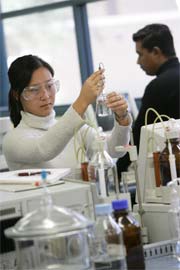 To achieve RDGQ 3, the research degree graduate:
To achieve RDGQ 3, the research degree graduate:
is an effective problem solver, capable of applying logical, critical and creative thinking to a range of research problems.
Generic indicators
A research degree graduate will:
- be able to define researchable questions in the discipline or professional area
- be able to design, select and apply appropriate research methodologies
- initiate creative responses to problems
- deal with complex issues in specialist fields systematically and creatively
- effectively apply intellectual and technological resources and tools to significant research issues.
Developing and demonstrating this RDGQ
This quality refers to your ability to recognise researchable questions and propose novel solutions to them.
Your problem-solving abilities are developed and can be demonstrated in:
- a recognised significant contribution to a field of scholarship (publication, conferral of degree, expert opinion within peer review process)
- knowledge of specific concepts, theories, methods, methodologies, and topic areas (described precisely and related to your research field)
- support activities undertaken in relation to the above.
RDGQ 4: Autonomous and collaborative research work
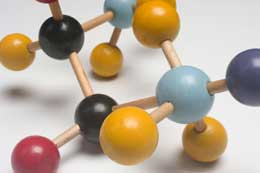 To achieve RDGQ 4, the research degree graduate:
To achieve RDGQ 4, the research degree graduate:
can work both autonomously and collaboratively as a researcher within a particular discipline or professional area and within wider but related areas.
Generic indicators
A research degree graduate will:
- demonstrate intellectual independence and be able to work in a self-directed way
- be able to formulate solutions in dialogue with peers, clients and others
- take a role as recognised leader or consultant in a team situation
- be able to work with and within a research team towards defined outcomes
- be able to negotiate and handle conflict.
Developing and demonstrating this RDGQ
This section refers to collaborative activities such as:
- team research
- group supervision
- shared writing projects and publication
- working with industry or community partners
- teaching
- refereeing
- networking.
Autonomous activities can be demonstrated in:
- sole authored publications and presentations
- successful completion of the research proposal, thesis and ethics proposal
- managing time, resources, supervisors, research partners effectively
- activities undertaken to support your accomplishment of the above.
RDGQ 5: Ethical and social issues in research
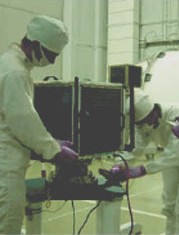 To achieve RDGQ 5, the research degree graduate:
To achieve RDGQ 5, the research degree graduate:
is committed to ethical action and social responsibility as a researcher in a discipline or professional area and as a leading citizen.
Generic indicators
A research degree graduate will:
- be aware of ethical obligations to self, family, the research community and society generally
- be aware of ethical dilemmas likely to arise in research and professional practice
- be able to identify issues and social responsibility and sustainability that arise from the implications of new knowledge generated in their research area.
Developing and demonstrating this RDGQ
Here you can describe any activities undertaken and assurances provided to ensure your research was conducted ethically. This can include both practical and procedural aspects of the research, as well as philosophical or conceptual questions addressed in the research process.
Your commitment to ethical action and social responsibility is developed, and is demonstrable in:
- methodological rigour
- processes for ensuring confidentiality and consent of research subjects
- processes for ensuring ethical research involving animals, biohazards, human tissue
- processes for ensuring secure data storage
- careful avoidance of unethical reporting and publishing practices (plagiarism, data fabrication and falsification, redundant publication, sending the same article to two or more journals, text recycling, copyright infringements, misleading ascriptions of authorship, acknowledging without consent)
- subjecting research findings to peer review before making confirmed knowledge claims to the wider public
- making peer reviewed research findings accessible to the public (including online storage of research proposals and thesis, and preparation of reports for external organisations)
- following up with research subjects when promised
- reframing research problems and concepts to be more inclusive
- scholarly exploration of, and contribution to wider social issues and values such as democracy, peace, tolerance, participation, equity
- support activities undertaken to ensure the above.
RDGQ 6: Communication of research knowledge
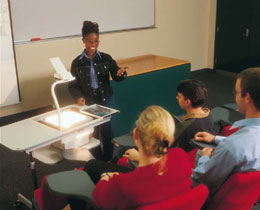 To achieve RDGQ 6, the research degree graduate:
To achieve RDGQ 6, the research degree graduate:
communicates effectively as a researcher in a discipline or professional area and as a leading member of the community.
Generic indicators
A research degree graduate will:
- be able to communicate effectively within a discipline and professional area
- be able to communicate their own research results both orally and in writing.
Developing and demonstrating this RDGQ
Your ability to communicate effectively as a researcher within your discipline/s, profession and the wider community may be developed and demonstrated in:
- oral presentation skills
- presentations to discipline and professional peers
- publications within discipline and professional fields
- presentations to the wider public, support activities undertaken to achieve the above.
RDGQ 7: International perspectives on research
 To achieve RDGQ 7, the research degree graduate:
To achieve RDGQ 7, the research degree graduate:
demonstrates international perspectives in research in a discipline or professional area and as a leading citizen.
Generic indicators
A research degree graduate will:
- appreciate the relation between their local discipline or professional area and its international counterpart
- use a range of research sources and literature that provide an appropriate balance between local and international perspectives.
Developing and demonstrating this RDGQ
An 'international perspective' is demonstrated whenever researchers situate their subject matter within a given context and consider the implications of their findings for people working in other contexts. An international perspective has to do with an awareness of the ways that location, and the perspectives, policies and practices tied to it, influence your own and others' research. Regardless of whether your research field pertains to a variety of geographical or cultural contexts, or to a narrow field of practice (for example 'Australian studies' or 'disability studies'), an international perspective can be demonstrated in:
- an appreciation of the relation, or the similarities and differences, between the research topic and professional area and its international counterparts (policy, practices, expectations, history, cultural values)
- reference to literature published in international journals or by international publishers.
An international perspective can be developed and demonstrated in:
- literature reviews
- field trips
- publications in international journals
- presentations in international conferences
- explanations of the implications of geographical and cultural differences for the research.






